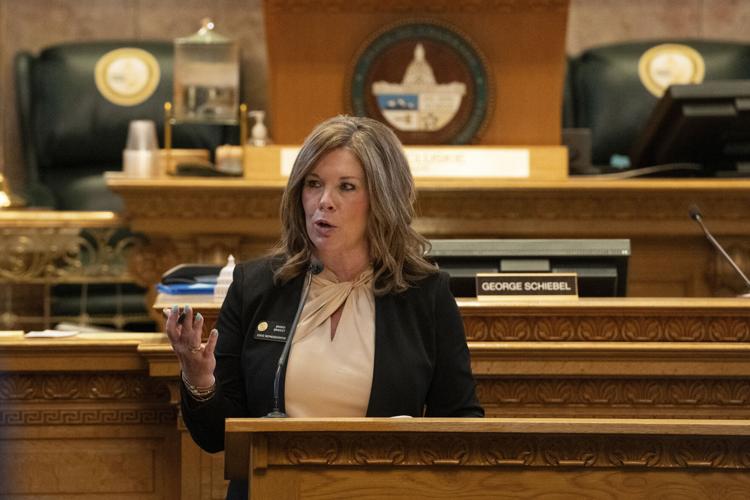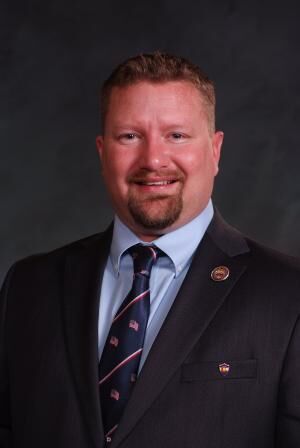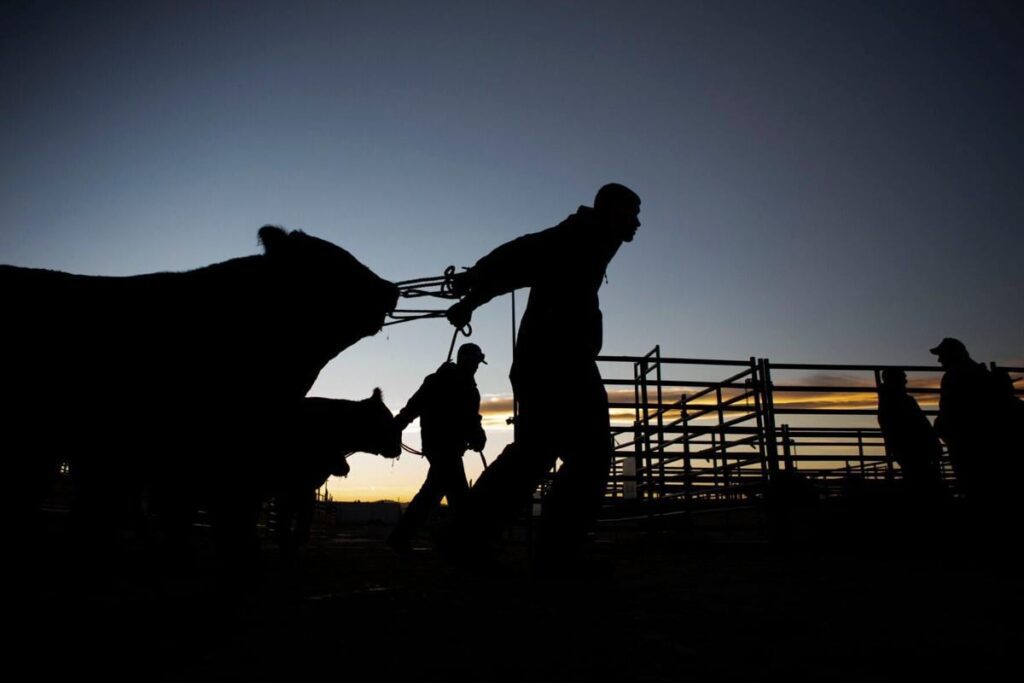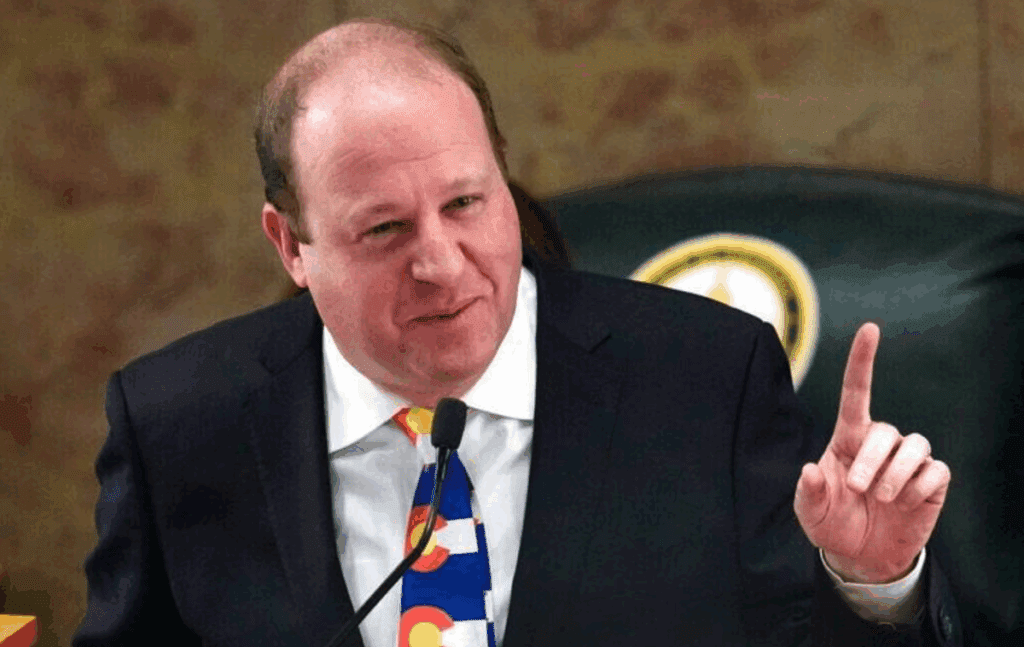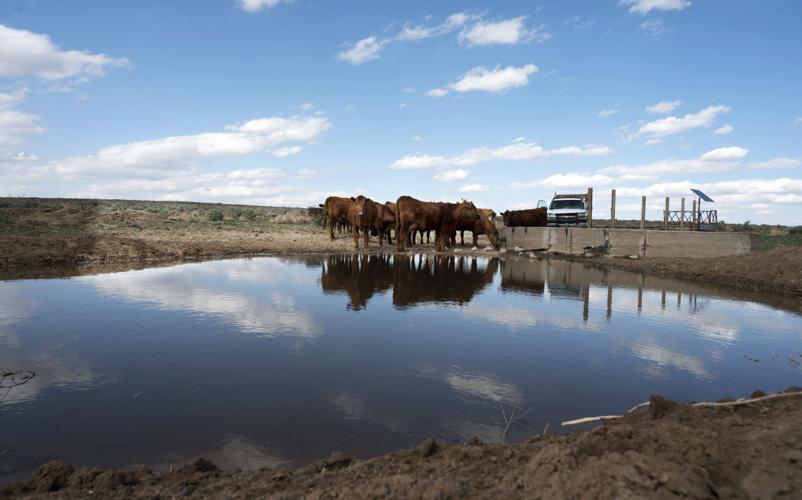Q&A with Tom Sullivan | Centennial lawmaker on being a champion for gun violence prevention

Colorado Sen. Tom Sullivan has fought to end gun violence since his son, Alex, was killed in the Aurora movie theater mass shooting in July 2012.
Over nearly 11 years, Sullivan testified for gun legislation in Washington D.C., advocated for a package of gun control bills passed in Colorado in 2013, was elected to the state House in 2018 and advanced to the state Senate last November.
During his time in office, Sullivan, D-Centennial, has sponsored successful legislation to create Colorado’s red flag law, set up a state Office of Gun Violence Prevention and require firearm owners to report when their guns are lost or stolen. But Sullivan’s work is reaching its culmination in the 2023 legislative session.
More than a half-dozen bills regarding gun control have been introduced to the state legislature this session, with four passed so far. The bills include proposals to ban ghost guns, ban assault weapons and increase the age to purchase firearms to 21. Two of the bills – expanding the state’s red flag law and establishing a three-day waiting period to deliver purchased firearms – are sponsored by Sullivan.
With less than a month remaining in the session, Sullivan sat down with Colorado Politics to discuss the ongoing legislative effort to combat gun violence and how he keeps on fighting a decade in.
Colorado Politics: This session has been particularly defined by the issue of gun violence, from the frequent student protests at the Capitol to the gun control bills working through the legislature. What’s that like for you? How do you feel things are going so far?
Sen. Tom Sullivan: Well, right now, we’ve had four bills that have passed. That’s not a lot. We’ve got 14 housing bills that are going on. There’s double-digit education bills. That’s what happens in this building each and every year. I am glad that we are moving forward, and we actually have got more moving forward than we had in the first four years that I was here. But we did nothing in 2020. We did nothing in 2022. That can’t happen. It doesn’t happen with the other large societal issues that we deal with. I’m glad we’re moving forward and I’m hoping that we can continue to do that.
CP: What is different about this year that there is now a wave of gun control bills coming through?
Sullivan: This was the first time in now my fifth year where I heard from the leadership of the House, the Senate and the governor that they wanted to do something about the public health crisis of gun violence. That’s the major difference. And that’s how the election went. With the Supreme Court legislation that came down, it looks like they’re going to move a lot of stuff back to the states. I believe that the voters of Colorado decided that, if we are going to move gun violence prevention legislation back as a state issue, they wanted Democrats to be in charge of that. That’s why Democrats have the largest majority that we’ve had in the General Assembly in 60 years. It’s because the voters asked us to do something on this issue and they voted for us to be here.
CP: Is it encouraging to you that state leaders are prioritizing gun violence, or is it more frustrating as someone who’s been pushing for it for over a decade?
Sullivan: I’m appreciative that they’re bringing it forward. Now, we just need to get the caucuses in both the House and the Senate to understand what we’re talking about. We need more champions for gun violence prevention. We have supporters, but what I think would be beneficial to the people of Colorado is to have champions on the issue. That means someone who unequivocally will get up and speak on it, who is immersed in the subject matter. I mean, there was a mass shooting in Alabama on Saturday night in which somebody went into a sweet 16 party, four people were murdered and 32 people were injured. No one brought that up today. Nobody came down to speak about that tragedy. That’s what we need. It can’t be me every single time bringing it to everybody’s attention, that this is a problem and what are we going to do about it.
CP: As someone who was impacted so closely and personally by gun violence, what is it like for you to be discussing and debating the issue so regularly?
Sullivan: It’s difficult. It didn’t take me long to figure out what I needed to do and what I represented. I know that it makes a difference because they didn’t have somebody here before who is impacted the way that I was and who has the courage to stand up and talk about it in such an open manner. But it is incredibly frustrating. We’ve been going through an inordinate amount of memorials for former legislators who have passed away. I can look at when they served and a lot of them served during that time between the Columbine massacre and the theater massacre. It’s difficult for me to sit there knowing that they chose not to do anything to prevent what happened on July 20, 2012. They didn’t even bring anything up to stop the mass shootings. They didn’t even try. Legislation didn’t even get introduced, and that’s what is so frustrating.
CP: Looking at the gun control bills that are up this session, do you support all of them? I heard that you aren’t for the assault weapons ban. (Editor’s note: This interview was conducted before the Colorado House Judiciary Committee on April 20 voted to kill the assault weapons ban.)
Sullivan: I don’t know where it is right now. By and large, I am in support of an assault weapons ban nationally. I’ve been to Washington D.C. on numerous occasions. I was just there in December and went to Sen. Hickenlooper’s and Sen. Bennett’s office, asking them to bring a vote forward to ban assault weapons on a national level. They should be voting on it there. My reasoning for that is because that’s who we need to be able to enforce it. We need the ATF, we need the FBI to be able to do it. We don’t have the enforcement mechanism statewide to be able to do it. We can see that we haven’t enforced our large-capacity magazine ban that’s been been in place for 10 years. You can still walk into any gun show any weekend in Colorado and buy a 35-round magazine, no questions asked. Same thing with our extreme risk protection. We’ve had that, in essence, for more than two years, and we still have non-enforcement of filing petitions. So we need to do a better job.
CP: Considering your concerns about enforcement and the effectiveness of state policies, if these new gun control bills pass, do you think they’ll have an influence on gun violence?
Sullivan: Absolutely. And they are. They’re influencing and making a difference. They’re saving lives, and I understand that’s hard for people to hear when the number of gun deaths keeps going up. Nobody used to know somebody who was involved in a mass shooting, and that’s changing. More and more people are being impacted by gun violence. The six degrees of separation is shrinking into three degrees or two degrees. But we are making progress and we certainly need to do more.
CP: After your red flag law passed in 2019, the Republican Party unsuccessfully tried to force a recall election against you. And, in 2013, two Democrats were successfully recalled in the Senate after they supported that year’s gun control bill package. Are you concerned about facing that kind of backlash if this year’s bills make it through?
Sullivan: No. I don’t know if that is still a part of their playbook. They filed a recall petition against me, and we defeated it in 29 days. They had never defeated a statewide recall before, we were the first ones to defeat the recall. And they did three more against Leroy Garcia, Brittany Pettersen and Pete Lee. All of those failed. I mean, I’ve won two more elections since then. So, if that’s what they choose to do, then that’s certainly on them. I’m looking to try and save lives, and I think that’s what the rest of my caucus is prepared to do, as well.
CP: What do you say to your colleagues who oppose the gun control legislation? The Republicans, but also the Democrats.
Sullivan: As far as the Republicans, I don’t know really what it’s going to take. This is the biggest majority Democrats have had in 60 years, that means it’s the smallest Republican caucus at the state Capitol in 60 years. There’s a reason for that. We’re not taking anything away from anybody. All we’re doing is trying to make the law-abiding gun owners become responsible, and that’s what their constituents are asking for, as well. If you continue to vote against that type of legislation, I believe there’s going to be fewer Republicans again next time.
As far as people in the Democratic caucus who are finding a way to vote against this type of stuff, I tell them: “This is what the people in your district are asking you to do. As a Democrat in Colorado, this is an issue we can run on, we can lead on, and we win on. So, if you don’t want to or you feel that you are hearing something different than the rest of the caucus is, I can tell you that you’re wrong. The people of Colorado have asked us to do something about it, and if you are going against their wishes, there’s the possibility that you won’t be here the next time around. “
CP: You’ve said in previous interviews, particularly around the 10-year anniversary of the Aurora theater shooting, that being in the legislature is not good for you. That it’s “slowly killing” you. What’s keeping you here?
Sullivan: I realize that it’s making a difference. On the people here, to an extent, but more so it’s making an impact on the people outside of the Capitol. That they know there’s somebody here who knows what they’re going through. Statistically, there will be 110 people who are going to die by gun violence today. That happens every single day and I know what they’re going through. When the kids from East High came the day after their friend died, I know what that day is like, I know what the next week is like, I know what the next month is like. They need to know that there’s somebody here who understands. When it happened to us, I looked around and I couldn’t find anybody who I could listen to and who I could go to and have them understand. Now, these people do have somebody and they do reach out. So, that’s what I’ve got to do. If that’s my place, then that’s what I’ll do.
CP: Do you think your work will ever be done? How would you know?
Sullivan: I worked in the post office for 28 years. The mail keeps coming. It doesn’t stop. You finished what you did that day, you came back the next day and there was another truck that you had to unload and you had to start it all over again. It’s very similar with this. We can keep things moving along. We can have some successes. But at the end of the day, we know that there’s going to be more people that are impacted by it. You just have to get yourself ready and do it again the next day. And know that you have made some differences. You’re not going to know whose life you saved today, or the impact that you’ve made on somebody. That’s just the way it is. So, you just keep doing the work.



